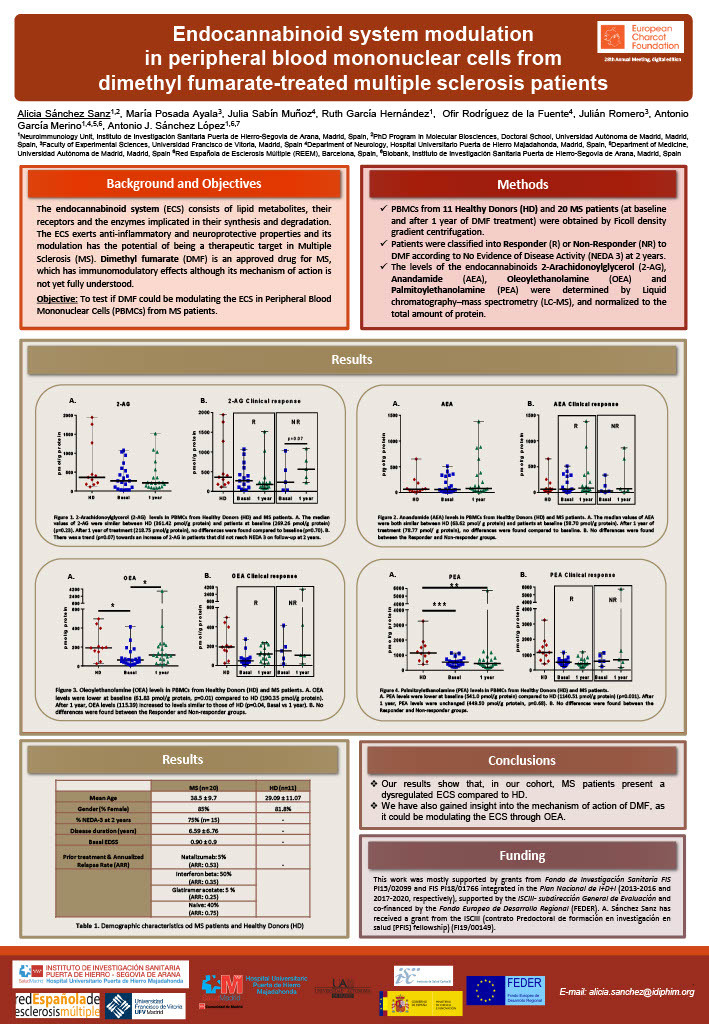Endocannabinoid system modulation in peripheral blood mononuclear cells from dimethyl fumarate-treated multiple sclerosis patients
Abstract
Background:
The endocannabinoid system (ECS) consists of lipid metabolites, their receptors and the enzymes implicated in their synthesis and degradation. The ECS exerts anti-inflammatory and neuroprotective properties and its modulation has the potential of being a therapeutic target in Multiple Sclerosis (MS). Dimethyl fumarate (DMF) is an approved drug for MS, which has immunomodulatory effects although its mechanism of action is not yet fully understood.
Objectives:
To test if DMF could modulate the ECS in Peripheral Blood Mononuclear Cells (PBMCs) from MS patients.
Methods:
PBMCs from 11 Healthy Donors (HC) and 20 MS patients (at baseline and after 1 year of DMF treatment) were obtained by Ficoll density gradient centrifugation. Patients were clinically followed for 2 years; disease activity was assessed annually. The levels of the endocannabinoids 2-Arachidonoylglycerol (2-AG), Anandamide (AEA), Oleoylethanolamine (OEA) and Palmitoylethanolamine (PEA) were determined by Liquid chromatography–mass spectrometry (LC-MS), and normalized to the total amount of protein.
Results:
The median values (in pmol/g protein) of 2-AG and AEA were both similar between HC (361.42 for 2-AG; 63.62 for AEA) and patients at baseline (269.26 for 2-AG; 58.70 for AEA). After 1 year of treatment, no differences were found compared to baseline. However, there was a trend (p=0.07) towards an increase of 2-AG in patients that did not reach NEDA 3 on follow-up at 2 years. OEA and PEA levels were both lower at baseline (61.83 for OEA, p=0.01; 541.0 for PEA, p=0.001) compared to HC (190.35 for OEA; 1140.51 for PEA). After 1 year, PEA levels were unchanged (449.50, p=0.68), but OEA (115.39, p=0.04) increased to levels similar to those of HC.
Conclusions:
Our results confirm the dysregulation of the ECS in MS. Furthermore, they shed light on a new mechanism of action of DMF in MS, as it can modulate the ECS through OEA.

